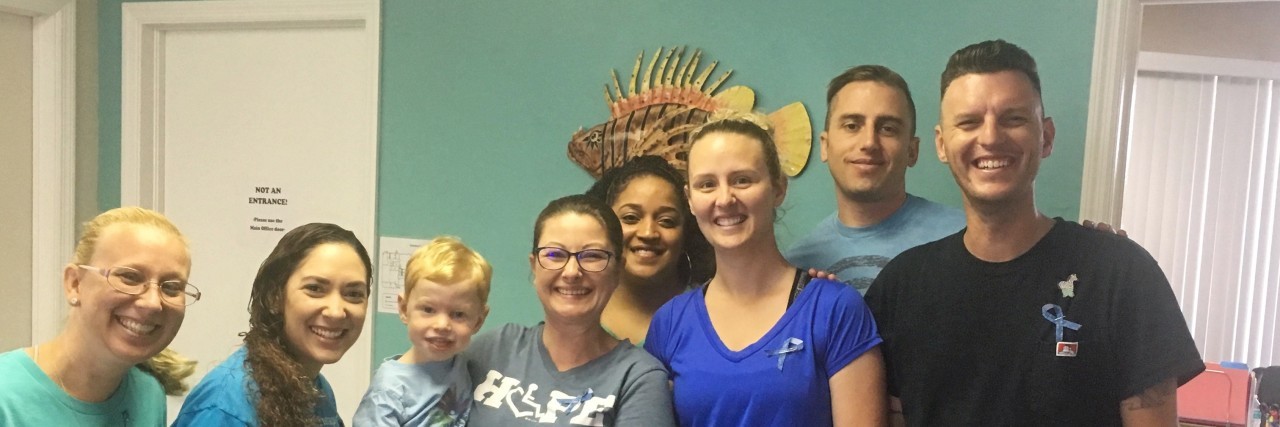It has been over two years now since my 4-year-old son was diagnosed with a rare disease. The first year was spent getting our bearings and trying to process what we had learned. This past year really has become more about learning how to manage our new reality. I’d like to share the top five things I’ve learned over the past year about living with a rare disease.
1. Community unity. Community can mean so many different things. What first comes to mind is the power of a unified rare disease community. Many rare disease communities are so small, and their reach can feel very limited. But if 30 million Americans came together, their voice would be too loud to ignore! It was so moving for me to attend Rare Disease Week on Capital Hill and the Global Genes Rare Patient Advocacy Summit last year and be surrounded by so many who were motivated to make great changes for the community.
Local community is also a vital part of maintaining/improving quality of life. Managing a rare disease can be very draining financially, and our family has been very fortunate to have several local organizations step in and help us get adaptive equipment that wasn’t covered by insurance. Our local community has been a huge support for Curren and has helped us greatly in maintaining his quality of life.
2. Cure versus care. Another big change in how my family approaches living with a rare disease is a shift from focusing on cures to focusing on quality care. When we first found out the genetic cause for Curren’s rare disease, I jumped head first into learning everything I could about the gene — its biology, its interactions with other genes, and treatments being developed for similar conditions. I spoke to researchers and had a strong desire to raise money to fund research for a cure. I soon realized that the most meaningful use of my time and resources was to focus on the pieces that I can change for the better – like providing quality therapies, integrating a robust alternative communication system into everyday life, finding doctors who genuinely care, and planning for the best educational opportunities.
3. Find your “people.” It was hard to realize that not everyone understands our situation, and that is OK. When our family’s trajectory took a different path, it’s was challenging to diverge from our planned journey, and from some of those on that journey. It can be very isolating to feel as though you are moving further away from everything familiar, but by surrounding ourselves with those who are supportive and accepting, we have found our village. Our journey no longer looks like the one we expected, but it is just as beautiful. We are grateful for those who help us through the additional challenges we face as a rare disease family.
4. Embrace empathy. Perhaps what supporting someone with a rare disease has taught me most is to be empathetic. With a non-verbal son, we find ourselves very often trying to imagine the world from his perspective to better understand his feelings and emotions. More importantly, as our focus has shifted from “fixing” him to “supporting” him, it has become very clear that those with differences are not broken, but the lens in which we view them is what should adjust. The doctors, therapists, and teachers who have been most instrumental in providing excellent care have been truly empathetic, and we become our best selves when we try to experience other’s realities. The human experience is a shared experience, and empathy is about connecting.
5. Be person-centered. The approach that has helped me best understand how to support my son with a rare disease is person-centered planning, which shifts the focus to how a person wants to live their life and what is required to make that possible. When planning focuses on the person instead of the rare disease/disability/service in question, discussions start to shift in a good way. All people have the right to live, love, work, play, and pursue their life aspirations in their community. Focusing on person-centered planning instead of systems-centered planning creates a compelling image of a desirable future.
My wish is that we all can become more understanding of our differences. Strength lies in
difference, not in similarities.
We want to hear your story. Become a Mighty contributor here.

